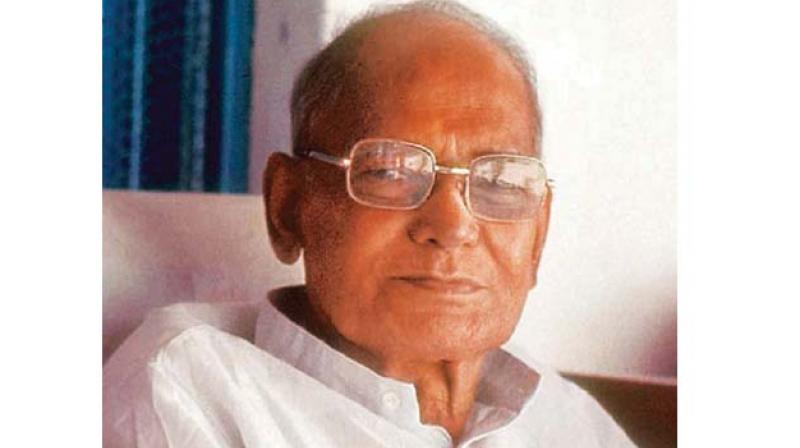Remembering Jayaprakash Narayan

“On the very portals of democracy – irrespective of its form and structure – are words written that can never be wiped off without wiping off democracy itself. No kind of democracy can exist without the democratic freedoms – freedom of conscience, of association, of expression – and the rule of law. Where these freedoms do not exist, nor the rule of law, there can be no democracy. For my enquiry here I take these words as axiomatic and inscribe them in bold letters on the doorway before entering the house of Indian democracy.”
These were the words of Jayaprakash Narayan, written in 1960 in his much discussed thesis ‘A Plea for Reconstruction of Indiana Polity’. In the academic circles this was subject to critical examination. To highlight a few, the sociologists Morris Jones and William H. Carpenter took sides criticising and supporting the thesis. Rajani Kothari, the veteran political scientist, also wrote summarising the views expressed about the tenets in the thesis, in a conference in Mumbai, in which JP also had participated.
The crux of JP’s argument in the thesis was that representative democracy and centralisation of state power was not suited for a country like India. Instead of a pyramidal structure of government, we should have an ever expanding concentric circle of government jurisdictions from village to the national level. Instead of the atomistic individual, village will be the basic unit of governance. The emphasis was on participation of every citizen in governance and consensus. Critics feared that if carried to extremes, this can lead totalitarianism. In an unequal and caste ridden society, how a consensus can develop among ‘equally participating free citizens’ ? This is the argument of elite capture of local institutions. But it can happen with national institutions of governance also.
Thinking in the public domain has fluctuated within the spectrum of complete centralisation and utmost decentralisation. Total centralisation would obviously lead to unsuitable measures which ignore local specificities and a feeling of alienation among the local communities. Local checks and balances do have a definite role to play in development.
Moreover, there would be less accountability and more corruption in a completely centralised set up. Between what Gandhi and JP visualised, that is, a scenario of village republics becoming basic units of governance and indirectly selecting other governments at provincial and national level and what protagonists of centralisation who feared elite capture, a via media has appeared in Indian polity.
A quarter of century has passed since 73rd and 74thamendments. Even prior to that there were pioneering attempts at democratic decentralisation by states like Kerala and Karnataka. But in many parts of the country, decentralisation is devoid of content. With a little or no funds on their own, local governments are dependent on the centre and the States for fund devolution and hence have become mere agencies rather than self-governing institutions.
JP was criticised for suggesting that representative democracy be repacked with a village unit based indirect democracy. Critics feared that the burden of social and economic inequalities would make consensus the voice of a few imposed on many. JP did not lay adequate emphasis in his thesis to address this question and Rajani Kothari has pointed out that JP’s response was emotional. But ifpolitics can effectively challenge the outdated privileges and inequalities, the threat of elite capture can be reduced i and decentralisation can be a democratic tool of planned development. Hegemonistic tendencies can take newer forms which needs to be tackled through dynamic responses.
Francis Stewart in a recent lecture in Centre for Development Studies, Thiruvananthapuram, had drawn attention to ‘free market democracy’ becoming ‘corporate authoritarianism’. It is here that a strong and functional local governments can become strong pillars of democracy and egalitarian values inherent in our Constitution. A participating citizen is more aware of governance and assertive about the fact that everyone is a stakeholder and capture by one elite or the other would be found out early and essence of democracy, political, social and economic would be preserved.
On the 115th birth anniversary of Jayaprakash Narayan, democratic decentralisation is a way of change and a ray of hope in the journey towards a more equal and rights based society. Even while disagreeing with his thesis, it needs to be recognised that his questioning of the system, helped in catalysing the thinking about new alternatives. It also needs to be said at the cost of reiteration that he was in the forefront of successfully defending our parliamentary democracy when civil liberties were attacked by the rulers during the emergency. As an early marxist and a later democratic socialist, he believed in the essence of democracy and freedom for everyone more than anything else.

